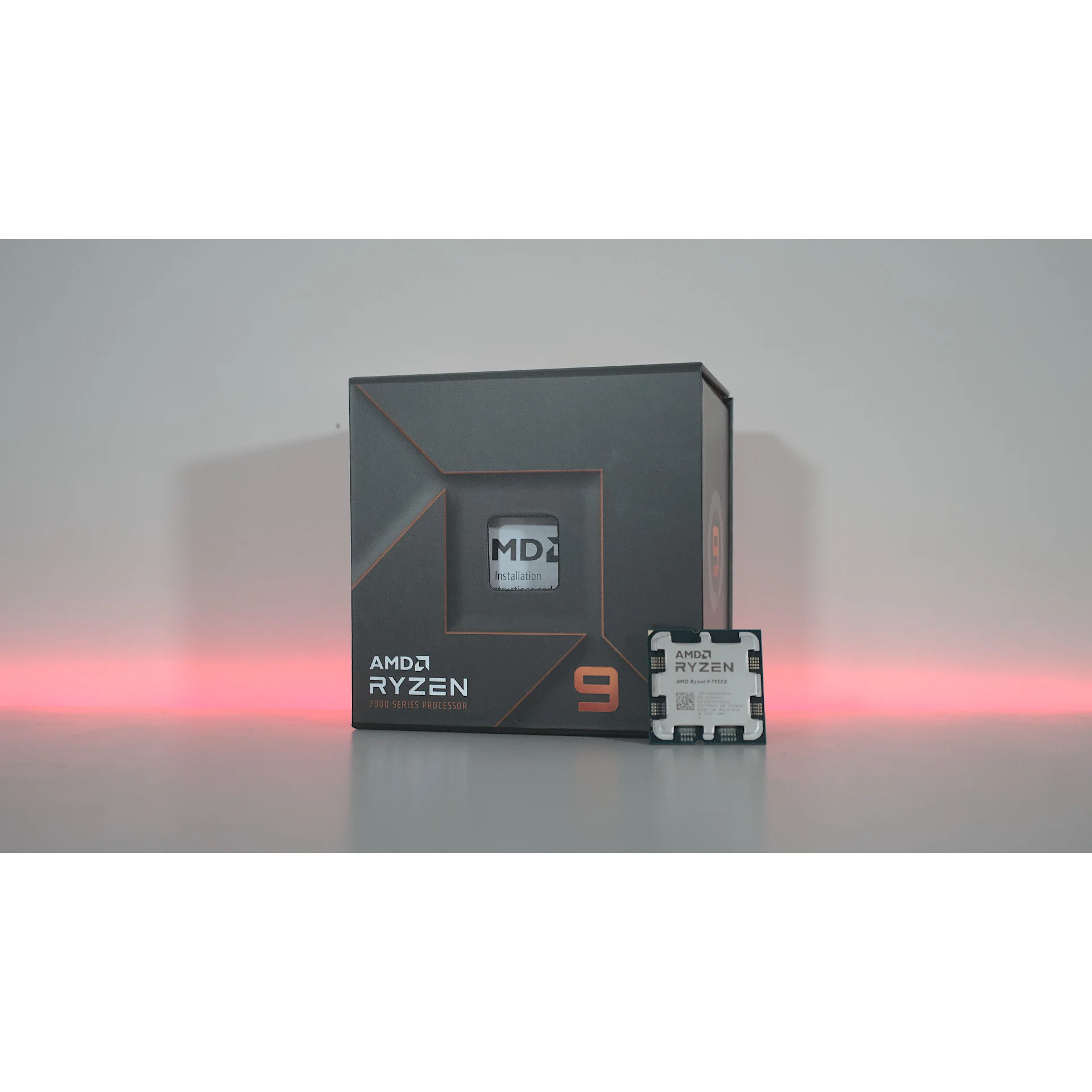In 2022, the ZEN4 edition of the Ryzen processor has been introduced. Our review focuses on the AMD Ryzen 9 7950X, featuring 16 (Big) CPU cores on an updated processing architecture. The new platform supports PCIe Gen 5, DDR5, and boasts a processor that can easily surpass 5 GHz. AMD has already unveiled its first ZEN4-based Ryzen 7000 processors. While a few updated graphics cards have been released, the hardware component market has been relatively quiet this year. However, the year will end with a flurry of new products from AMD, Intel, and NVIDIA. Specifications for these products were leaked over the summer, and today’s launch is centered around processors and motherboards.
The latest 5nm FinFET manufacturing process, a first for a desktop CPU, along with improved performance and increased power efficiency are key features of the new processor lineup. Additional details on AM5 motherboards compatible with these processors are now available, as well as AMD EXPO, a new standard for automatic RAM overclocking (essentially an SPD). The AMD Ryzen 7000 series, which includes the Ryzen 9 7950X and 7900X, the Ryzen 7 7700X, and the Ryzen 5 7600X, is now on the market. The base and boost clock speeds of these four new CPU models have been significantly boosted compared to their predecessors. Zen4 does not feature a hybrid design, opting instead for only big/P(erformance) cores. It remains uncertain if AMD will ever introduce a hybrid (big/small) core design. The argument can be made that such a design would require substantial adjustments to the Windows scheduler for Windows 11, as workloads may not easily adapt to a hybrid setup, even on mobile devices where efficiency is crucial. A non-hybrid design like Zen4 is highly preferred for desktop users and PC gamers.
The flagship Zen4 desktop CPU Ryzen 9 7950X will come with 16 cores and 32 threads, priced at a competitive USD 699. The Ryzen 9 7900X, featuring 12 cores and 24 threads with a boost speed of up to 5.6 GHz, will be available for USD 549. Positioned as a popular choice, the 8-core Ryzen 7 7700X will be priced at USD 399, while the Ryzen 5 7600X will be offered at USD 299 to complete the lineup. As of September 27th, 2022, all four CPUs are now on the market. The Ryzen 7000 series is expected to deliver a 13% increase in IPC compared to its predecessors, along with up to a 29% boost in single-thread performance. These improvements are largely attributed to the higher clock speeds, reaching up to 5.7 GHz on the flagship model, representing an impressive 800 MHz increase over the previous series. This performance enhancement can be primarily attributed to the enhanced Zen 4 architecture and the utilization of the smaller TSMC 5nm manufacturing process.
In a significant development, a new processor socket has been introduced after a long period, enabling features such as DDR5 and PCIe 5.0, thereby requiring the acquisition of new motherboards. The 600-series chipsets encompass models like X670E, X670, B650E, and B650. All processors come equipped with an integrated RDNA2 GPU, as well as support for PCIe 5.0 and DDR5 (the ‘E’ suffix denotes Extreme). This evaluation will involve testing the powerful Ryzen 9 7950X in conjunction with an ASRock X670E Taichi motherboard.
In a notable advancement, a fresh processor socket has been unveiled after an extended duration, facilitating functionalities like DDR5 and PCIe 5.0, thus mandating the procurement of new motherboards. The 600-series chipsets consist of variants such as X670E, X670, B650E, and B650. All CPUs are furnished with an integrated RDNA2 GPU, along with compatibility for PCIe 5.0 and DDR5 (the ‘E’ suffix signifies Extreme). This assessment will entail examining the formidable Ryzen 9 7950X paired with an ASRock X670E Taichi motherboard.

